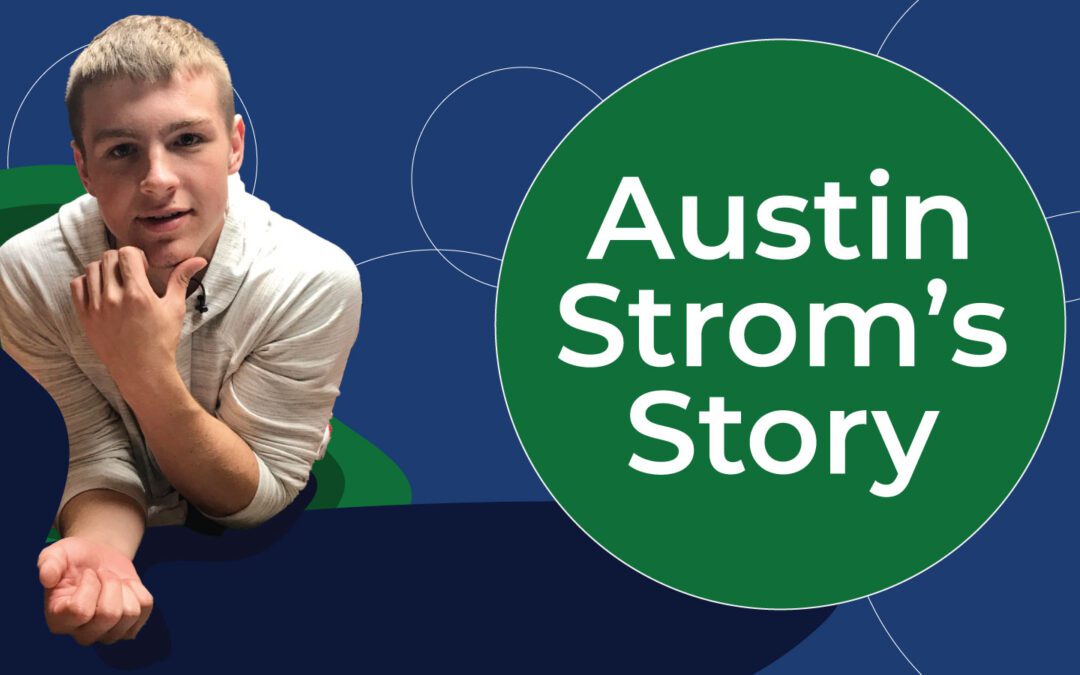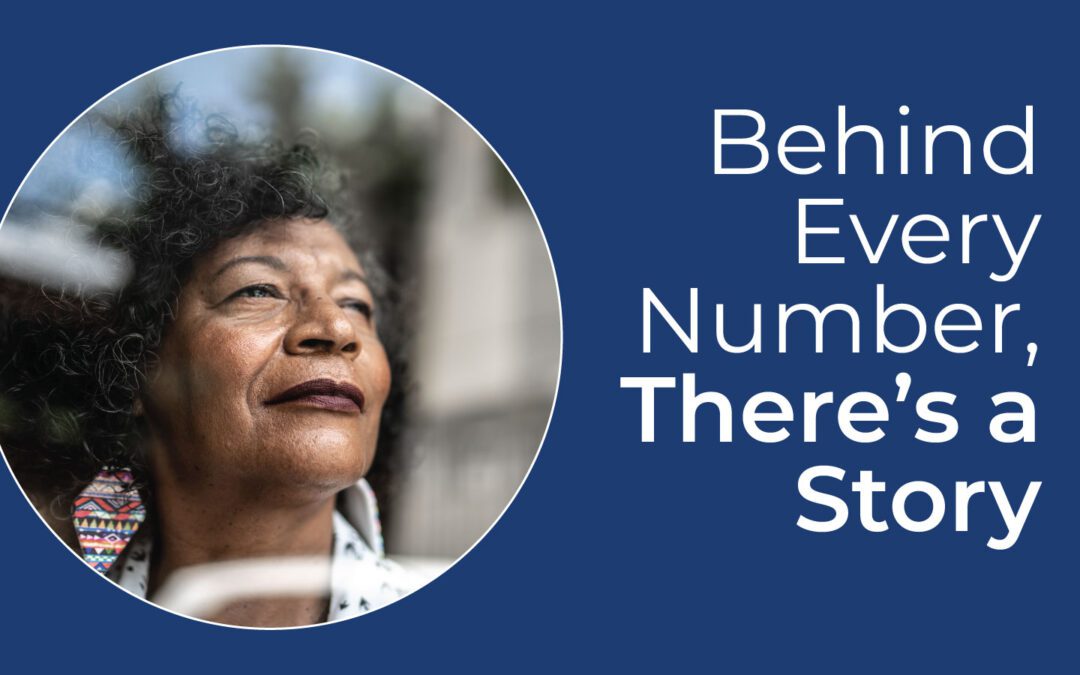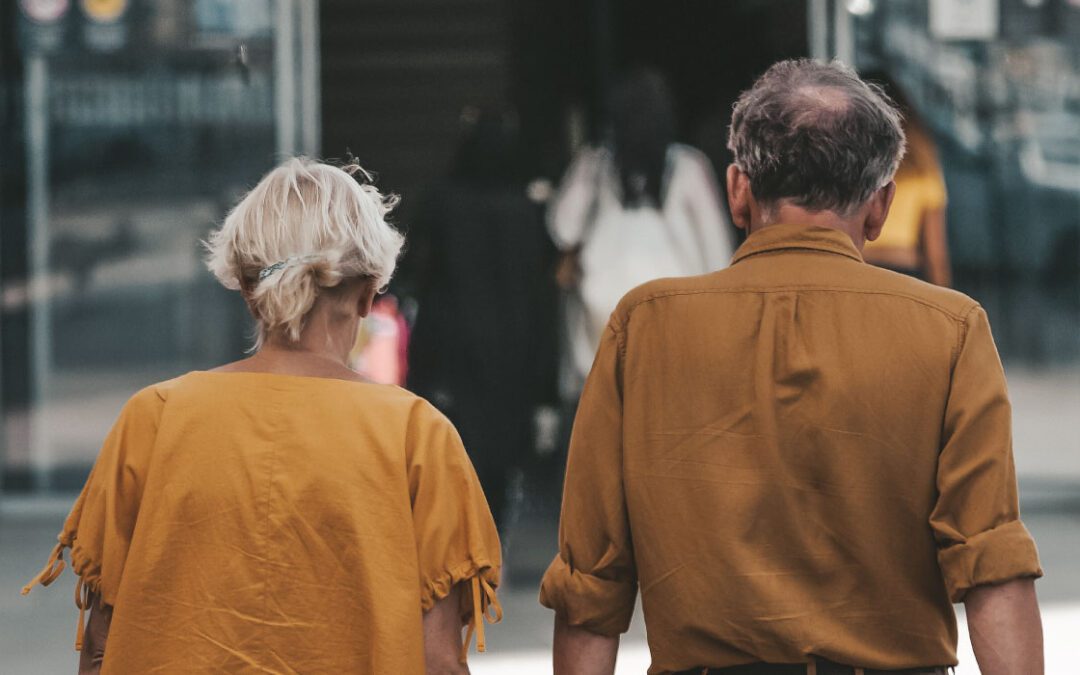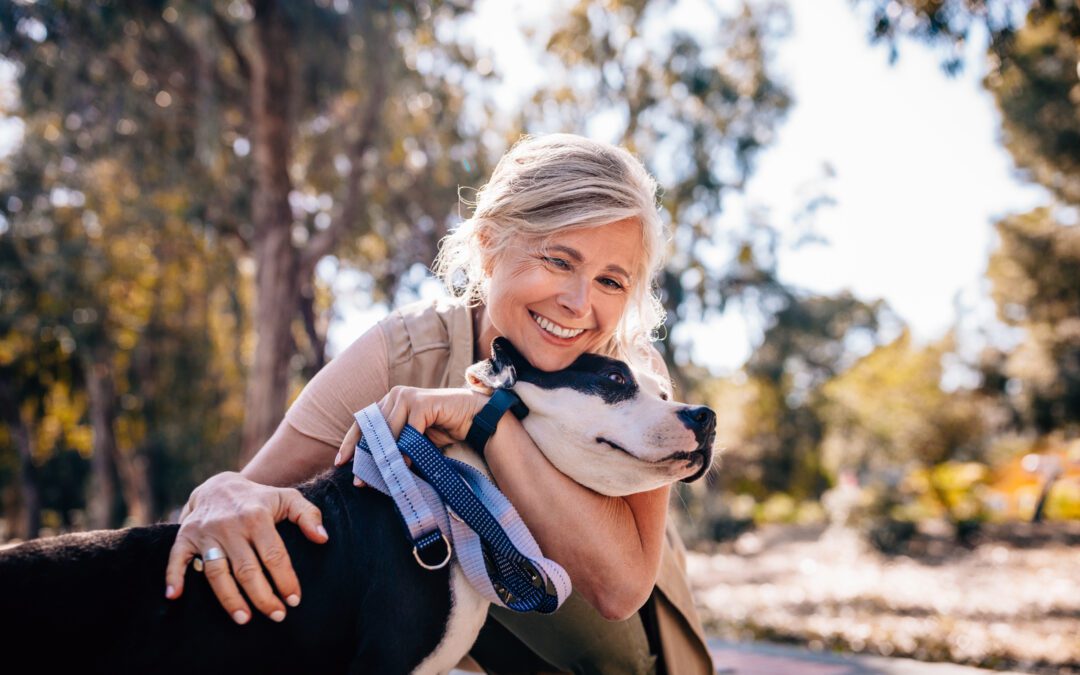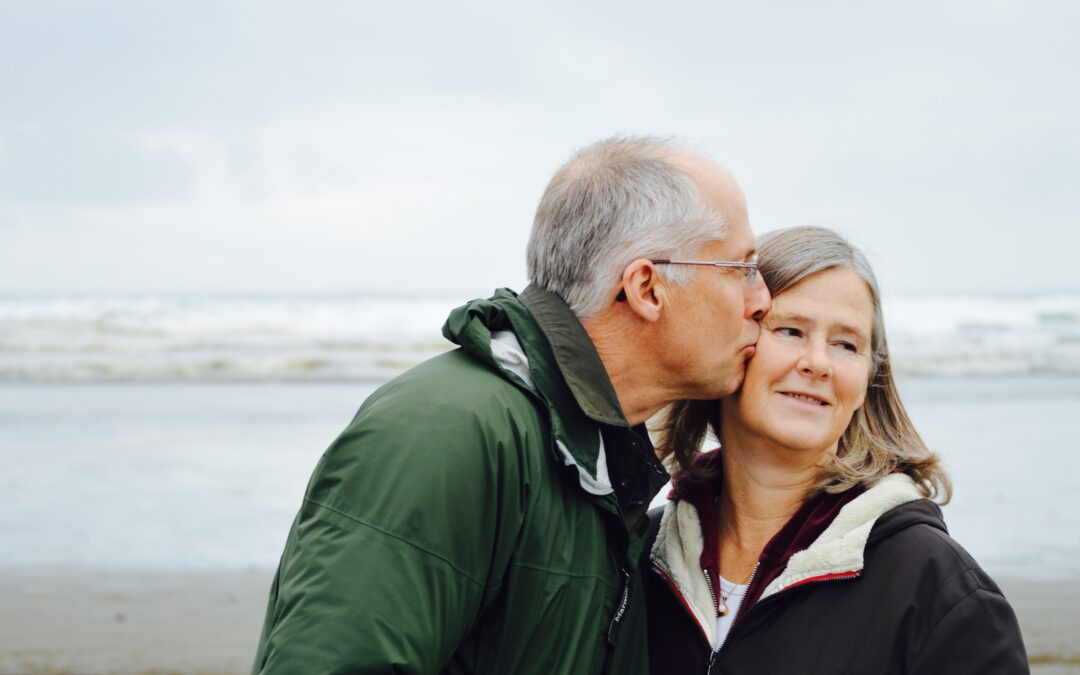
May 22, 2024 | RECOVERY, STORIES
My name is Austin Strom, and I am a gambling addict. I am 24, and for the last seven years, gambling has been my life.
Gambling runs in my family. My parents and grandparents, who had their own gambling battles, would often gamble. I have numerous memories of them arranging a baby sitter to watch me when they would go out gambling.
So not surprisingly, when I had an assignment called “If I had 100 dollars!” in kindergarten or first grade, my response was “I would go to the casino!”
In high school, I would occasionally partake in friendly sports wagers involving my team against my friends’ teams. I would also play Blackjack with friends without betting money, but the objective never changed: win the game.
The day I turned 18 was long anticipated. I went to the casino with my parents and grandmother that day. I didn’t have the best luck, but since it was my birthday and my parents didn’t want me to lose on my birthday, they kept adding money in hopes of turning the tide. I don’t remember how that day played out, but I do remember spending about 12 hours at the casino, losing all I had with me. For the next month, I went to the casino multiple times, including a two-night stay by myself at the hotel. Other than a few hours of sleeping, the rest of the time was spent at the Blackjack tables. I remember one day all I had to eat was a piece of pizza because to me eating was time away from the table.
I was then introduced to websites such as DraftKings and Bovada, where I could partake in daily fantasy sports. Before switching to actual sports betting, I lost several thousand dollars on fantasy sports. I would spend the next two years betting on sports weekly, if not daily. I would wait until the day I got paid, just to eventually drain my account and wait two weeks for the next paycheck. By this time, all of my gambling, which also included blackjack, was done online and I rarely went back to a casino.
Once Covid hit and the accompanying shutdowns, I had no shortage of free time. By this time, my minimum bet was already at least ten times more than when I started. When I ran out of money, I learned about online personal loans. I took out a $1,500 loan and planned to make enough money to pay it off before my next paycheck. But that didn’t work out and I borrowed more and more, eventually owing up to $30,000 over a three-week period.
By this time, I was determined to keep the addiction to myself so that nobody would try to encourage me to stop. This pressure, combined with anxiety and depression I had struggled with for much of my life, brought me to consider suicide. This led to one of a few trips to the emergency room for personal safety.
At this time, I was ready to get the help that those around me had suggested, or so I thought. I enrolled in Gamblers Choice, essentially a 12-step program for gamblers. But my addiction continued, even while it was harder to hide. I came to realize that the program wasn’t something I wanted to do or what I was ready for at the time.
I continued to gamble, but eventually went to inpatient treatment at Project Turnabout in Granite Falls. I met great people who understood what I was going through. It also showed me that this addiction doesn’t care where you come from or what you do. My mindset improved but I left after three weeks, rather than stay for the full 30 days I was supposed to do. I re-enrolled in Gamblers Choice but would continue to gamble until Oct. 9, the day I placed my last wager. At this point, I had lost everything I could possibly lose, including my best friend. I was left with two choices — end it all or give it 60 days without gambling and see if living without gambling was something I could do.
I was assigned a “Goodbye Gambling” letter in my Gamblers Choice group, and I believe that really got me to a new place. Since then, I’ve really looked at everything after that as a new life. I’ve had to and am still currently rewiring my brain’s definition of fun. Sure, the highs aren’t as high as they were when I was gambling, and they may never be that way. However, that also means the lows aren’t as low as they were while I was gambling, and that’s a trade I will take every day of the week. My entire outlook on life has changed since I’ve quit gambling. I’ve got a new hope towards life and what’s to come that excites me. I’m definitely a different person than I was even just several months ago. My gratitude for everything life has to offer has grown substantially, and none of that would have happened had I still been gambling. That’s why it’s important that I just don’t gamble today.
If you or somebody you know is struggling with a gambling addiction, please reach out for help. Do it for yourself. So often we see this message and just let it slide by without giving it any thought.
As dark as it may seem, I promise there is light at the end of the tunnel. Let the journey of recovery be that light for you, like it was mine and so many others. I leave you with this: “Sometimes when you’re in a dark place it feels like you’ve been buried alive. But perhaps, you’ve just been planted and now is your time to bloom.”
It is with great sadness MNAPG learned that Austin was fatally shot on August 17, 2024. Austin was actively embracing his recovery at the time of his death. We continue to publish his story as a lasting inspiration.

May 22, 2024 | PROBLEM GAMBLING, STORIES
Note: The following article was written by Bill Stein, MNAPG staff writer, for this year’s Problem Gambling Awareness Month theme: Every Story Counts.
Each March, the National Council on Problem Gambling recognizes Problem Gambling Awareness Month (PGAM). It’s an opportunity to raise awareness about problem gambling and promote prevention, treatment and recovery services. This year’s PGAM theme is “Every Story Matters.”
As one who’s chronicled the gambling struggles — and recoveries — of nearly 50 Minnesotans over the last 15 years, I believe in the power of stories to bring the reality of this addiction to light and to demonstrate how treatment can change lives.
There are an estimated 250,000 problem gamblers in Minnesota. And for every problem gambler, countless other people in their orbit are affected, including family members, friends and coworkers.
But numbers are one thing. The real impact that gambling disorder has on the lives of our neighbors, our parents, our siblings and our friends is quite another.
The stories of the people impacted by gambling addiction paint a more complete, human picture of the destruction this addiction can bring as well as the triumphs of those who have faced their demons and are living full, productive, satisfying lives.
Gambling addiction is an equal opportunity disorder. Virtually anyone – men or women, young or old, and those from every religion, race and socio-economic background – is at risk for developing a gambling problem.
The stories of Minnesotans I’ve documented have reflected this tapestry. Consider these:
• A member of the Navy, who was among the boots on the ground in the Middle East, was faced with the challenge of coming home and trying to match the excitement and high-tempo routine he had become accustomed. The closest adrenaline rush he could find was gambling. He eventually developed an addiction and accompanying depression before he found the help he needed.
• “Tim” became a kind of celebrity in his town after he won $500 in a church picnic at age of seven. He chased that high of winning for 34 years. Then he entered inpatient treatment for his gambling and has since turned his life around.
• “Jean” was the gambling addict you’d never suspect. She wasn’t a video gamer, didn’t like football pools and didn’t play the stock market. She didn’t even start gambling until she was almost 50. It took being fired from her job (from stealing money to support a gambling habit) and serving a lengthy prison sentence until she confronted her addiction and began her recovery.
• “Cecelia” was five months pregnant when she learned about her husband’s gambling activity. It ultimately became such a problem that he lost his job, the couple’s only source of income. She sought help from Gam-Anon, which helps those whose lives are negatively impacted by a problem gambler. She educated herself about her husband’s gambling addiction and ultimately left the roller coaster life her husband’s gambling had caused. She is now thriving, and working to support others who have been through what she has.
• “Dick” was a self-professed straight arrow, a regular church-goer and a good family man with a well-paying job in management. But once pressures drove him to make frequent visits to the casino, things changed significantly. Dick ended up with large credit card debts and owing the government thousands of dollars in taxes.
• “Lori” rarely gambled until work stresses and unresolved childhood trauma drove her to gamble as often as she could. In time, she put gambling ahead of her home, her husband, her kids and even food for herself. Depressed and suicidal, she’d planned to end her life until an eagle swooped over her car as she took her son to visit his grandmother. She saw the eagle as a sign of hope, went online to find help and learned of the successful recoveries that others had had. She subsequently started the 30-day inpatient gambling program at Project Turnabout in Granite Falls and turned her life around.
While each of these stories is unique, they often have a lot in common. I’ve found that many of the recovering gamblers we highlight have these characteristics:
• A big win early in their life that creates a high they “chase” for years.
• Their gambling often occurs with other mental health conditions. For example, a gambling addict may also experience substance or alcohol abuse.
• They are typically either: 1. An “escape gambler” who gambles to escape life’s problems, or 2. An “action gambler” who may appear egotistical, successful and outgoing, and often prefers to play games involving skill, such as poker or sports betting.
• Relapses are often stops along the way in their overall recovery process.
There many other similarities, such as lying about money and time spent gambling, stealing to acquire money and a preoccupation with gambling. Many of the gamblers I’ve profiled have also attempted suicide, sometimes several times.
What also comes through when sharing the stories of problem gamblers is the pain they feel for what their gambling has caused others. They regret the lies they’ve told, the gift money they’ve squandered, the retirement savings they’ve spent and the way they’ve prioritized gambling over family, friends, relationships and jobs.
These are good, well-meaning people. They often didn’t know there was such a thing as gambling addiction, and if they did, they weren’t sure how or where to get help. They struggled to find other people who understood them.
In the end, after speaking to so many people, I’ve come away with great admiration for those who have turned around their lives — and great hope that the many others currently suffering from this devastating disorder can eventually become success stories of their own.

Oct 17, 2022 | CONCERNED OTHERS, PROBLEM GAMBLING, STORIES
Although Dianne is not a big football fan, she’ll never forget the Monday Night Football game between the Minnesota Vikings and Dallas Cowboys on January 3, 1983. It was the first major bet her husband, Don, placed on a football game. He bet a whopping $1,500 – an amount to cover accumulated gambling losses to date – and lost.
More than 25 years later, Dianne shudders at the memory of that night. She looks back on it as the beginning of a 14-year period in which her husband’s gambling took the family on a roller coaster ride it never wanted.
Shortly after that Vikings game, Don’s gambling losses began to mount. It soon led to another early memory that haunted the family: his young children watched in dismay as a stranger came into their house to remove a Betamax machine, the sales proceeds of which would be used to settle gambling debt. In the first of many gambling-related lies to his children, Don explained that the machine was broken.
In time, Don’s betting advanced from football to all other sports, and he soon had his own bookie. “I bet every day of the year except the Monday and Wednesday before and after the baseball all-star game, the only two days of the year when there was no sports betting,” says Don.
After Don’s bookie was the subject of a police raid, federal agents dressed in suits and badges came to the house. That development sent shock waves through the family. “That really scared the kids and I felt we couldn’t have that,” says Dianne. She subsequently packed up the kids and moved in hopes of finding a more stable home environment.
The sight of an empty house served as the first wakeup call for Don. He began attending Gambler’s Anonymous in 1986 and convinced Dianne he was ready to quit. Only he really wasn’t.
Shortly thereafter, Dianne came across a piece of paper with a list of football games while the couple was away at a cabin. “I was assured by Don that they were old games because he’d quit gambling.” She later confirmed the list was for current football games.
As a result, Don became increasingly sneaky in his dealings. He cancelled handball games with friends and rearranged work shifts so he could find more time for gambling at the casino. Don learned to kite checks from three checking accounts he created, and found himself visiting a banker every day. “I could at least relax on the weekends when the banks were closed,” recalls Don some 20 years later. He was working one job and half of another “to keep all the balls in the air.”
Don forged his wife’s signature a few times to take out loans to pay gambling debts. With a flexible work schedule, Don, who controlled the family’s finances, arranged to be home when he knew the mailman would arrive, meeting him several houses in advance. “The joke was that I was having an affair with the mailman,” says Don.
The cycle of lies and deceit – as well as a general absence from the family – continued through 1994, about eight years after Don first attended GA. On Tuesday, December 27, 1994, he called in sick to work and cancelled a handball match with a friend so that he could stay at a casino. When Don, who called his wife every afternoon like clockwork, didn’t call at the usual time, Dianne suspected the worst. Late that afternoon, a call finally came. “Would you mind if I cashed another $100 check,” Don asked? “Do whatever you want, stay as long as you want, I don’t care,” said his defeated wife of 16 years.
Don came home in the wee hours of the morning on Wednesday, but to a bedroom that was locked. He knew he’d hit rock bottom and had to stop gambling. He went to GA that night and has been attending religiously every since. That Tuesday night was the last time he’s every gambled.
Today, Don is well into his recovery and is a thriving member of society. He considers himself fortunate in that GA has helped him, and helped him at age where he can still repay his debts and hopefully accumulate something of a nest egg. Other gambling addicts require individual treatment and counseling to help in their recovery.
The road has been long and not without challenges. “It was particularly tough to quit at the beginning,” says Don. “Even several years into it, I remember seeing a list of football games and asking myself if the Packers would cover the spread, etc.” For her part, all these year’s later, Dianne’s stomach still turns when she sees her husband turn the channel from one football game to another, conditioned for so many years to think he’s checking on games he bet on.
Forgiveness, after so many years of deception, is difficult to grant. In Don and Dianne’s case, a more complete healing didn’t occur until well after Don had quit gambling and the couple had engaged in Retrouvaille, a type of marriage counseling that’s not unlike a 12-step program.
Thankfully, much of the damage caused by Don’s gambling has gradually healed. His daughter, who wouldn’t allow him to attend her high school graduation nor be part of her wedding, has reconciled with Don. “Our kids carried around a ton of hurt from what their father did,” says Dianne. “It seemed like every time we wanted to do something as a family, all the sudden he was gone. For the kids, it was one broken promise after another.”
Today, 17 years into his recovery, Don’s promises are as good as gold.

Aug 10, 2022 | PROBLEM GAMBLING, RECOVERY, STORIES
I was exposed to a variety of games early in my life. Our family played Pokeno — which is how I learned to play cards — and spun dreidels, which was the first game I played that involved money. I won my first big pot at the age of five years old.
As I got a little older, I played poker and pinochle. I remember losing all my money in poker to my neighbors but then watching my father bail me out by winning it all back. I enjoyed the thrill of being a part of that.
I went to a casino for the first time at 21. I enjoyed it. Then, at about age 30, I met a man who also enjoyed gambling. We started playing Bingo a lot and pull tabs. I remember finding Bingo to be slow, so I played multiple cards and also pull tabs between games.
It was about this time when I started to become preoccupied with gambling. I began lying to myself and others about money. I lost a job directly because of errors in my work due to my gambling, which I sometimes did for 24-36 hours before work.
Eventually, I started attending GA meetings with my husband, but mainly to support him. I looked at the others and thought they had more problems than I did. There was a part of me that wanted to stop, but my desire to continue gambling was greater than my desire to not gamble.
I rationalized that gambling helped me when I was feeling depressed, as I would otherwise just stay home and sleep. I became suicidal, but since I only felt that way when I wasn’t gambling, I convinced myself that I should keep gambling.
Eventually, I realized that my gambling was a symptom of a deeper problem. Gambling was a part of keeping feelings down — guilt, shame, remorse, etc. I was doing things that were against my core principles, such as lying to dear friends, writing bad checks, losing jobs, more drinking and depression. I rationalized some of my behavior by thinking that I hadn’t gone to prison or killed anyone.
While I stopped gambling for periods of time, I couldn’t stop completely. My finances were in ruin and I was full of anger toward myself and my out-of-control behavior. Thanks to my fellow GA members, I was eventually hospitalized for a second time for depression and then went on to treatment for my gambling. The last time I gambled was on February 19, 2011.
I learned that you can find hope and meaning from the most unlikely of sources. In my gambling fog, I had neglected so many things, including my dog and my plants. While I was away, a friend cared for my house, including my plants. When I returned home, I saw that my tomato plant had somehow survived and was even sprouting new life; I refer to it as Lazarus the Tomato Plant. I took that as a sign that I was going to grow a new life as well.
I can’t believe all the positive things about my life. I’m proud of who I am today and the work I do with the GA program. In the past, I thought only of myself. Now I think of others and volunteer my talents whenever possible. I’ve grown personally. I challenge myself to do things that make me uncomfortable. I enjoy trying new things and taking new approaches in my life of recovery.
If people reading this are on the fence about whether to seek help, I would tell them to keep coming back. Although I was initially not working the GA program when I attended the meetings, they still helped me — the seeds eventually took. I would encourage others to hang on to the desire to stop gambling. It doesn’t have to be an armload of desire; it can be a smidgeon. The desire to stop gambling just has to be greater than the desire to gamble.

May 25, 2022 | PROBLEM GAMBLING, RECOVERY, STORIES
MNAPG Northern Light Spring 2022
At a very young age, I remember people telling me, “You’re lucky. You’re just like your grandma.”
Well, my grandmother was a compulsive gambler. But gambling didn’t have devastating consequences to her life because she could only gamble the set amount of money my grandfather gave her. Her gambling never caused her to go without food or to miss rent.
I was raised in a very dysfunctional family. My mother used drugs and would let drug dealers and users sexually abuse her for drugs. As a result, I grew up with no boundaries and would do everything I could to not feel anything.
Until my mid 30s, I went to casinos every now and then, maybe once a year. It was fun. But then two things happened. First, I got divorced, and I started going to the casino more. And second, I got a big win.
When I first won big, I remember thinking this should be my job, that I could never make money this fast. My bets got higher to get the same dopamine rush.
It didn’t take long before I knew I had a gambling problem, but I didn’t know how to label it. I called myself a “gamblaholic” because I didn’t know of any other term. Nobody told me to get help.
I spent a six-figure court settlement in the span of three months and lived in seven places in less than a year. I dated men and essentially had sex for money so that I could continue to gamble.
It got to the point where every time I was driving back to the casino, I’d think about ways I could hurt herself. The wanting to die consumed me. I thought, “If I win, I’ll live. If I don’t, then I can always commit suicide.” I tried to commit suicide three times.
I needed and wanted help, so I googled gambling help in Minnesota. I called and had an intake meeting with an outpatient counselor. She highly recommended that I go for inpatient help at Vanguard Center for Gambling Recovery. However, I had joint custody and after a tumultuous divorce my ex would not take my son beyond the schedule. I wanted so badly to get help but felt stuck.
A week after I tried to hang myself, my final suicide attempt, my 18-year-old son finally said to me, “Mom, please go get help.” He said he would take care of the house and his brother so that I could go. I can honestly say that he saved my life. I had no more excuses to not get help.
My gambling often went hand-in-hand with using meth. Thankfully, Vanguard was able to help with both issues. There is no question in my mind that getting over gambling is much harder than getting over drugs, even though gambling doesn’t involve ingesting anything into your body.
Indeed, there is so much that people don’t understand about gambling addiction, even in health care. I work in nursing, and when I talk to the providers about gambling disorder, most say they never received training on the topic. I tell them about the high suicide rate, that you can’t wake up and be sober as you can from alcohol, and that when you look at your checking account, it’s still negative. These providers may see people with gambling problems but have no idea where to send them for help.
I’ve talked to my pastor often and try to share my story at church, where they most often talk about drug and alcohol addiction. I am willing to share my story to anyone if it can help somebody.
If anyone reading this wonders if they have a problem and are on the fence about what to do, here is what I would say. Go online and learn about gambling addiction. Take the 20-question screening to see how many questions you answer “Yes” to. Then, if it’s appropriate, seek help, whether it’s searching for “Minnesota gambling help,” looking into Gambler’s Anonymous or calling the state’s helpline (1-800-333-HOPE). People who are struggling should also know that there are programs to help them financially so they can get treatment.
My story is not very pretty, but I am truly grateful for my addiction because it has turned my life around. My relationships are better, I’m honest and open, and am able to share things that bother me. I’m happy and working hard to earn a paycheck. I appreciate this so much more than if I didn’t have a gambling addiction and hadn’t gotten help. I have serenity.

Feb 23, 2022 | PROBLEM GAMBLING, RECOVERY, STORIES
I’ll never forget the first time I realized there was hope for my compulsive gambling. I was at confession and the priest said, “I don’t normally do this, but I’m giving you the phone number of someone in gambling addiction recovery at Gamblers Anonymous (GA).”
I always had the desire to quit gambling, but didn’t feel like I had the tools or the power to do it. I went to weekly GA meeting, and although I had weekly relapses in the beginning, I kept going. I’ve been going for more than three years, and the meetings continue to sustain me in my recovery.
When I was young, my grandparents and family loved to play Thirty-one and other card games for nickels or quarters. When I won the ‘pot’ it was like a big win for me. When I lost, I remember my grandma saying, “If you can’t play, you gotta pay.” It was always very enjoyable and I was lucky with it most of the time.
In college, I went to casinos with my parents. I brought $20-40 to lose. I played normally and, at this point, didn’t think of myself as a gambler.
After that, I went on a tour of different states to visit different casinos and their different games. My first really big disaster occurred in Las Vegas, where I lost my entire paycheck. I remember walking two miles in the desert with no money and feeling despair for the first time. I continued to gamble and always played until I lost everything.
A few years later, I remember going to a casino and praying because I was feeling attacked by demons at the casino. The people to my right were arguing about money while the faces of the people leaving the casino were distraught. These images were in marked contrast to people just arriving, who were running in and joyful.
At this point, I realized that if I were to continue gambling, I would lose my life’s savings. I decided that I was going to quit gambling, which I did for 13 years.
Then about six years ago, I went to a casino as part of a Christmas party my employer had. I won a TV and split a large 50-50 jackpot, and decided that gambling wasn’t so bad. Within a few months, I had four big wins, ranging from about $1,000 to $6,000. I remember thinking, “This is fantastic. This is easy money.”
I was courted in the VIP program and invited to parties and special events. I went to the casino four to five times a week. I also learned how to get a cash advance on credit cards and how to link my player’s card to my bank so I could take money out in advance. In that year, I lost about $28,000.
Things turned dark for me. I suffered from anxiety and medical issues, including a visit to the ER for a racing heart. I worked overtime, but every cent went to the casino. This went on for three years.
I looked into the Vanguard Center for Gambling Recovery and was told that I could benefit from enrolling there. However, I worried whether going there would jeopardize my job. I felt like I had to choose between losing my job or losing my life.
Between the tools I’ve gained from (inpatient) treatment at Vanguard, outpatient treatment and my GA meetings, I’ve been able to sustain my recovery since May. I know that I can string days together with sobriety and take comfort in knowing I only have to make a decision for the day.
Given my history — and given the nature of this nasty addiction — I can’t say that I’ll never gamble again. But I do know that every day in recovery is a better day than every day spent gambling.
If I could reach out to someone in the grip of gambling — who probably feels that it could lead to some kind of insanity or even death — I would tell them how quickly things start to get better once you start your recovery. In Minnesota, we are lucky to have many great resources, but you have to reach out.
